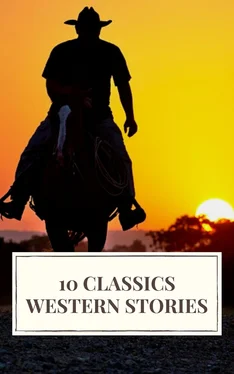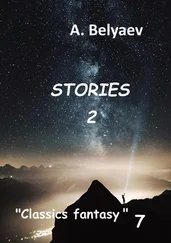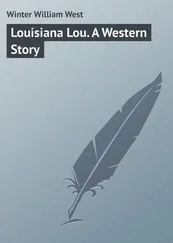Samuel Merwin - 10 Classics Western Stories
Здесь есть возможность читать онлайн «Samuel Merwin - 10 Classics Western Stories» — ознакомительный отрывок электронной книги совершенно бесплатно, а после прочтения отрывка купить полную версию. В некоторых случаях можно слушать аудио, скачать через торрент в формате fb2 и присутствует краткое содержание. Жанр: unrecognised, на английском языке. Описание произведения, (предисловие) а так же отзывы посетителей доступны на портале библиотеки ЛибКат.
- Название:10 Classics Western Stories
- Автор:
- Жанр:
- Год:неизвестен
- ISBN:нет данных
- Рейтинг книги:3 / 5. Голосов: 1
-
Избранное:Добавить в избранное
- Отзывы:
-
Ваша оценка:
- 60
- 1
- 2
- 3
- 4
- 5
10 Classics Western Stories: краткое содержание, описание и аннотация
Предлагаем к чтению аннотацию, описание, краткое содержание или предисловие (зависит от того, что написал сам автор книги «10 Classics Western Stories»). Если вы не нашли необходимую информацию о книге — напишите в комментариях, мы постараемся отыскать её.
The novels are sorted alphabetically by the authors.
Content:
The Log of a Cowboy by Andy Adams
The Bridge of the Gods by Frederic Homer Balch
The Lure of the Dim Trails by B.M. Bower
Hidden Water by Dane Coolidge
The Last of the Mohicans by James Fenimore Cooper
The Prairie by James Fenimore Cooper
Salomy Jane by Bret Harte
Astoria by Washington Irving
The road to Frontenac by Samuel Merwin
That Girl Montana by Marah Ellis Ryan
10 Classics Western Stories — читать онлайн ознакомительный отрывок
Ниже представлен текст книги, разбитый по страницам. Система сохранения места последней прочитанной страницы, позволяет с удобством читать онлайн бесплатно книгу «10 Classics Western Stories», без необходимости каждый раз заново искать на чём Вы остановились. Поставьте закладку, и сможете в любой момент перейти на страницу, на которой закончили чтение.
Интервал:
Закладка:
After putting the Salt Fork behind us, our spirits were again dampened, for it rained all the latter part of the night and until noon the next day. It was with considerable difficulty that McCann could keep his fire from drowning out while he was getting breakfast, and several of the outfit refused to eat at all. Flood knew it was useless to rally the boys, for a wet, hungry man is not to be jollied or reasoned with. Five days had now elapsed since we turned off the established trail, and half the time rain had been falling. Besides, our doubt as to where we were had been growing, so before we started that morning, Bull Durham very good-naturedly asked Flood if he had any idea where he was.
"No, I haven't. No more than you have," replied our foreman. "But this much I do know, or will just as soon as the sun comes out: I know north from south. We have been traveling north by a little west, and if we hold that course we're bound to strike the North Fork, and within a day or two afterwards we will come into the government trail, running from Fort Elliot to Camp Supply, which will lead us into our own trail. Or if we were certain that we had cleared the Indian reservation, we could bear to our right, and in time we would reënter the trail that way. I can't help the weather, boys, and as long as I have chuck, I'd as lief be lost as found."
If there was any recovery in the feelings of the outfit after this talk of Flood's, it was not noticeable, and it is safe to say that two thirds of the boys believed we were in the Pan-handle of Texas. One man's opinion is as good as another's in a strange country, and while there wasn't a man in the outfit who cared to suggest it, I know the majority of us would have indorsed turning northeast. But the fates smiled on us at last. About the middle of the forenoon, on the following day, we cut an Indian trail, about three days old, of probably fifty horses. A number of us followed the trail several miles on its westward course, and among other things discovered that they had been driving a small bunch of cattle, evidently making for the sand hills which we could see about twenty miles to our left. How they had come by the cattle was a mystery,—perhaps by forced levy, perhaps from a stampede. One thing was certain: the trail must have contributed them, for there were none but trail cattle in the country. This was reassuring and gave some hint of guidance. We were all tickled, therefore, after nooning that day and on starting the herd in the afternoon, to hear our foreman give orders to point the herd a little east of north. The next few days we made long drives, our saddle horses recovered from their scare, and the outfit fast regained its spirits.
On the morning of the tenth day after leaving the trail, we loitered up a long slope to a divide in our lead from which we sighted timber to the north. This we supposed from its size must be the North Fork. Our route lay up this divide some distance, and before we left it, some one in the rear sighted a dust cloud to the right and far behind us. As dust would hardly rise on a still morning without a cause, we turned the herd off the divide and pushed on, for we suspected Indians. Flood and Priest hung back on the divide, watching the dust signals, and after the herd had left them several miles in the rear, they turned and rode towards it,—a move which the outfit could hardly make out. It was nearly noon when we saw them returning in a long lope, and when they came in sight of the herd, Priest waved his hat in the air and gave the long yell. When he explained that there was a herd of cattle on the trail in the rear and to our right, the yell went around the herd, and was reechoed by our wrangler and cook in the rear. The spirits of the outfit instantly rose. We halted the herd and camped for noon, and McCann set out his best in celebrating the occasion. It was the most enjoyable meal we had had in the past ten days. After a good noonday rest, we set out, and having entered the trail during the afternoon, crossed the North Fork late that evening. As we were going into camp, we noticed a horseman coming up the trail, who turned out to be smiling Nat Straw, whom we had left on the Colorado River. "Well, girls," said Nat, dismounting, "I didn't know who you were, but I just thought I'd ride ahead and overtake whoever it was and stay all night. Indians? Yes; I wouldn't drive on a trail that hadn't any excitement on it. I gave the last big encampment ten strays, and won them all back and four ponies besides on a horse race. Oh, yes, got some running stock with us. How soon will supper be ready, cusi? Get up something extra, for you've got company."
Chapter 11 A Boggy Ford
That night we learned from Straw our location on the trail. We were far above the Indian reservation, and instead of having been astray our foreman had held a due northward course, and we were probably as far on the trail as if we had followed the regular route. So in spite of all our good maxims, we had been borrowing trouble; we were never over thirty miles to the westward of what was then the new Western Cattle Trail. We concluded that the "Running W" herd had turned back, as Straw brought the report that some herd had recrossed Red River the day before his arrival, giving for reasons the wet season and the danger of getting waterbound.
About noon of the second day after leaving the North Fork of Red River, we crossed the Washita, a deep stream, the slippery banks of which gave every indication of a recent rise. We had no trouble in crossing either wagon or herd, it being hardly a check in our onward course. The abandonment of the regular trail the past ten days had been a noticeable benefit to our herd, for the cattle had had an abundance of fresh country to graze over as well as plenty of rest. But now that we were back on the trail, we gave them their freedom and frequently covered twenty miles a day, until we reached the South Canadian, which proved to be the most delusive stream we had yet encountered. It also showed, like the Washita, every evidence of having been on a recent rampage. On our arrival there was no volume of water to interfere, but it had a quicksand bottom that would bog a saddle blanket. Our foreman had been on ahead and examined the regular crossing, and when he returned, freely expressed his opinion that we would be unable to trail the herd across, but might hope to effect it by cutting it into small bunches. When we came, therefore, within three miles of the river, we turned off the trail to a near-by creek and thoroughly watered the herd. This was contrary to our practice, for we usually wanted the herd thirsty when reaching a large river. But any cow brute that halted in fording the Canadian that day was doomed to sink into quicksands from which escape was doubtful.
We held the wagon and saddle horses in the rear, and when we were half a mile away from the trail ford, cut off about two hundred head of the leaders and started for the crossing, leaving only the horse wrangler and one man with the herd. On reaching the river we gave them an extra push, and the cattle plunged into the muddy water. Before the cattle had advanced fifty feet, instinct earned them of the treacherous footing, and the leaders tried to turn back; but by that time we had the entire bunch in the water and were urging them forward. They had halted but a moment and begun milling, when several heavy steers sank; then we gave way and allowed the rest to come back. We did not realize fully the treachery of this river until we saw that twenty cattle were caught in the merciless grasp of the quicksand. They sank slowly to the level of their bodies, which gave sufficient resistance to support their weight, but they were hopelessly bogged. We allowed the free cattle to return to the herd, and immediately turned our attention to those that were bogged, some of whom were nearly submerged by water. We dispatched some of the boys to the wagon for our heavy corral ropes and a bundle of horse-hobbles; and the remainder of us, stripped to the belt, waded out and surveyed the situation at close quarters. We were all experienced in handling bogged cattle, though this quicksand was the most deceptive that I, at least, had ever witnessed. The bottom of the river as we waded through it was solid under our feet, and as long as we kept moving it felt so, but the moment we stopped we sank as in a quagmire. The "pull" of this quicksand was so strong that four of us were unable to lift a steer's tail out, once it was imbedded in the sand. And when we had released a tail by burrowing around it to arm's length and freed it, it would sink of its own weight in a minute's time until it would have to be burrowed out again. To avoid this we had to coil up the tails and tie them with a soft rope hobble.
Читать дальшеИнтервал:
Закладка:
Похожие книги на «10 Classics Western Stories»
Представляем Вашему вниманию похожие книги на «10 Classics Western Stories» списком для выбора. Мы отобрали схожую по названию и смыслу литературу в надежде предоставить читателям больше вариантов отыскать новые, интересные, ещё непрочитанные произведения.
Обсуждение, отзывы о книге «10 Classics Western Stories» и просто собственные мнения читателей. Оставьте ваши комментарии, напишите, что Вы думаете о произведении, его смысле или главных героях. Укажите что конкретно понравилось, а что нет, и почему Вы так считаете.












